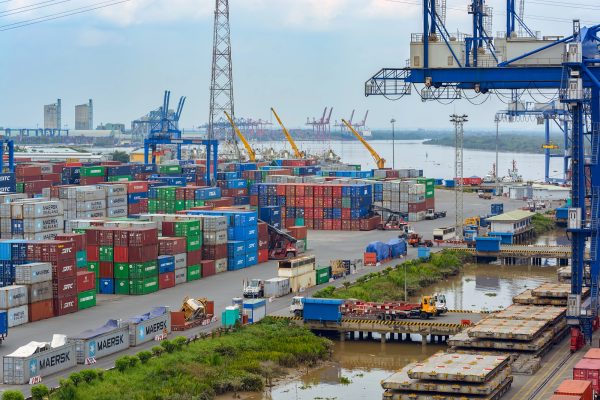Vietnam this week made a number of preemptive bilateral trade concessions to the United States in a bid to avoid the imposition of tariffs by the Trump administration next week.
According to a report by Reuters that cited a statement released by the Ministry of Finance on Tuesday night, the tariff on U.S. liquefied natural gas (LNG) will be reduced from 5 percent to 2 percent. Duties on cars will be reduced to 32 percent, down from a range of 45 to 64 percent, while the tariff on ethanol will be halved from 10 percent to 5 percent.
In the statement, Nguyen Quoc Hung, the head of the Finance Ministry’s tax policy department, said that the tariff cuts are aimed at “improving trade balances with [Vietnam’s] trade partners” and will help Vietnam “navigate the complex and unpredictable developments in the global geopolitical and economic situation.”
Hung said the decree on the tariff cuts “will be ready within this month and will take effect right after that,” Reuters reported. He added that Vietnam also plans to remove its tariff on American ethane, and that tariffs will also be slashed on a range of other “imports including chicken thighs, almonds, apples, cherries, and wooden products.”
While Vietnam and the U.S. have become closer partners, in part due to shared concerns about China’s growing power, the country could come under scrutiny by the Trump administration for its massive trade surplus with the U.S. This grew by nearly a fifth in 2024, hitting a record high of $123.5 billion. Vietnam now has the third-largest trade surplus with the U.S. of any nation, behind only China and Mexico – both of which have been hit with tariffs since Trump’s second term began in January. In particular, there are fears that the administration could punish Vietnam in light of reports that Chinese firms have set up factories in Vietnam specifically to avoid tariffs on goods from China.
The administration is set to announce a raft of reciprocal tariffs on April 2, which Trump has declared “liberation day.” This follows a comprehensive review by the Commerce and Treasury departments, including analyses of persistent U.S. trade deficits and what might be done to remedy them.
Given the obviously lopsided nature of the U.S.-Vietnam trade relationship, which also attracted attention during Trump’s first term, Hanoi has been proactive at preparing for possible attention from Washington. Earlier this month, Vietnam’s Minister of Trade Nguyen Hong Dien led a large delegation to Washington, where representatives of major Vietnamese firms signed a series of commercial deals with U.S. companies worth more than $4 billion. These included an MoU between PetroVietnam to buy GE equipment to help equip Vietnam’s raft of planned LNG-fired power plants, the first two of which are scheduled to start commercial power generation in June. Although Vietnam is not currently importing American LNG, it is proposing that it will use imports from the U.S. to supply these plants.
Even before Trump took office, Vietnamese officials “have quietly been advocating to U.S. officials and security experts about the importance of the bilateral strategic relationship,” Joshua Kurlantzick of the Council on Foreign Relations noted recently. In this context, this week’s concessions are intended as a token of good faith that Hanoi hopes will see it avoid the worst of Trump’s wrath.
In a possibly related move yesterday, the Vietnamese government announced that it had allowed Elon Musk’s SpaceX to launch its Starlink satellite internet service on a trial basis. The trial period, which will run until 2030, will allow SpaceX to sign up a limit of 600,000 customers for the satellite internet service. Talks between SpaceX and the Vietnamese government reportedly ran aground in late 2024 over Hanoi’s reluctance to ease the rules on foreign ownership of telecom firms with network infrastructure.
Whether or not Vietnam’s preemptive concessions to Trump and Musk make any difference to how it is treated by the Trump administration remains to be seen. But given the dawning strategic relationship between the U.S. and Vietnam, the country can certainly make a good case for being exempted from the worst punishments of Trump’s “day of liberation.”


